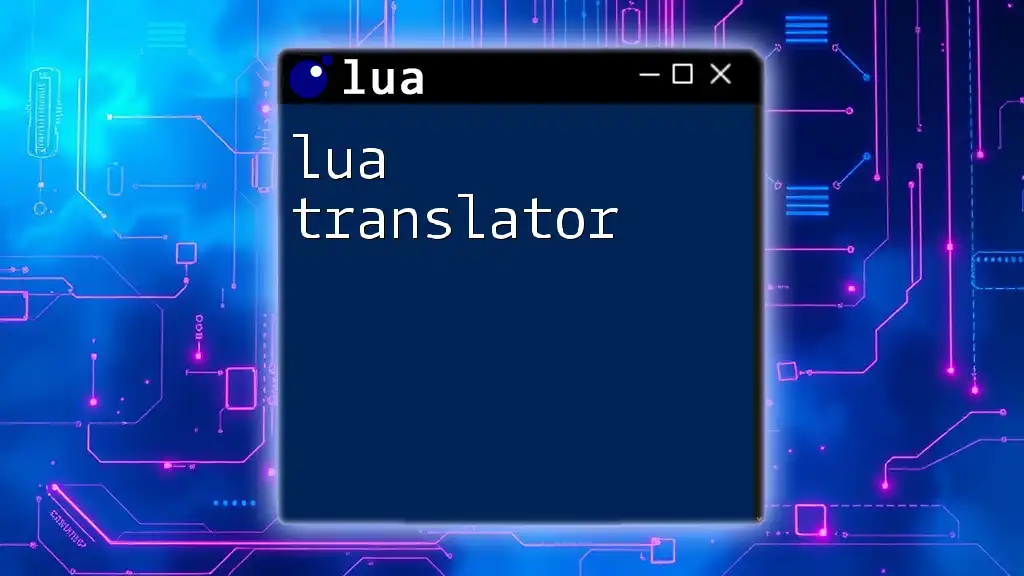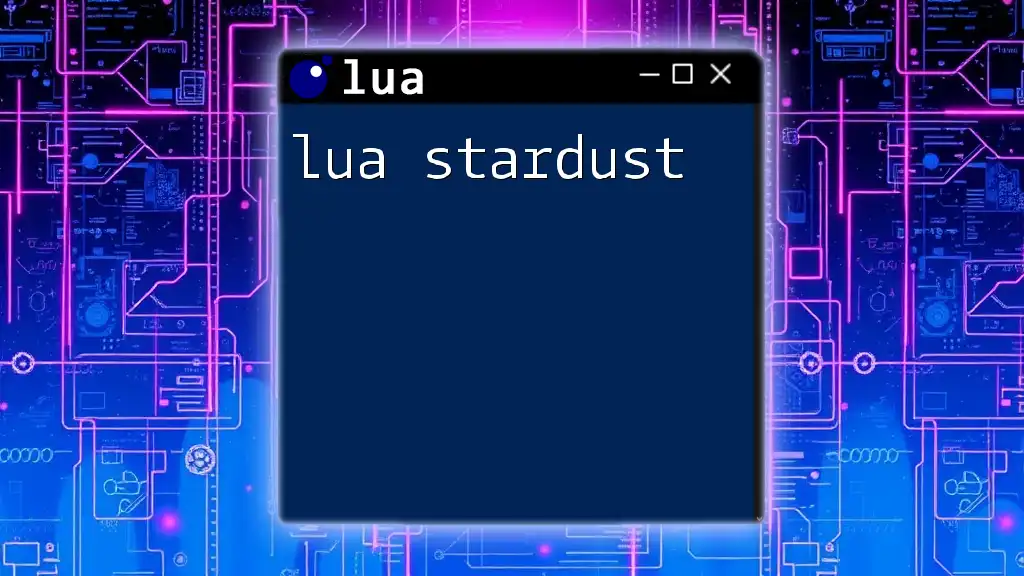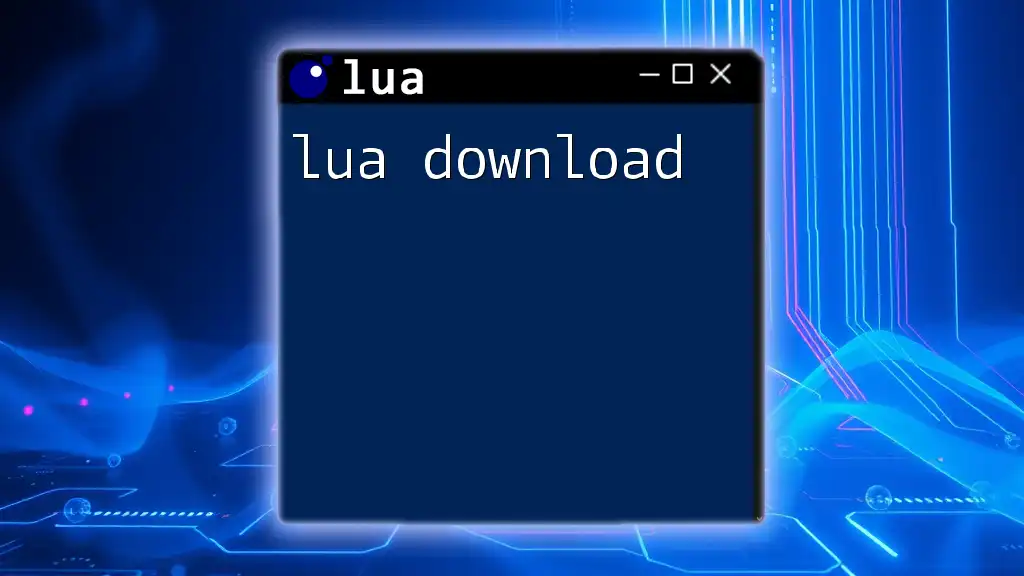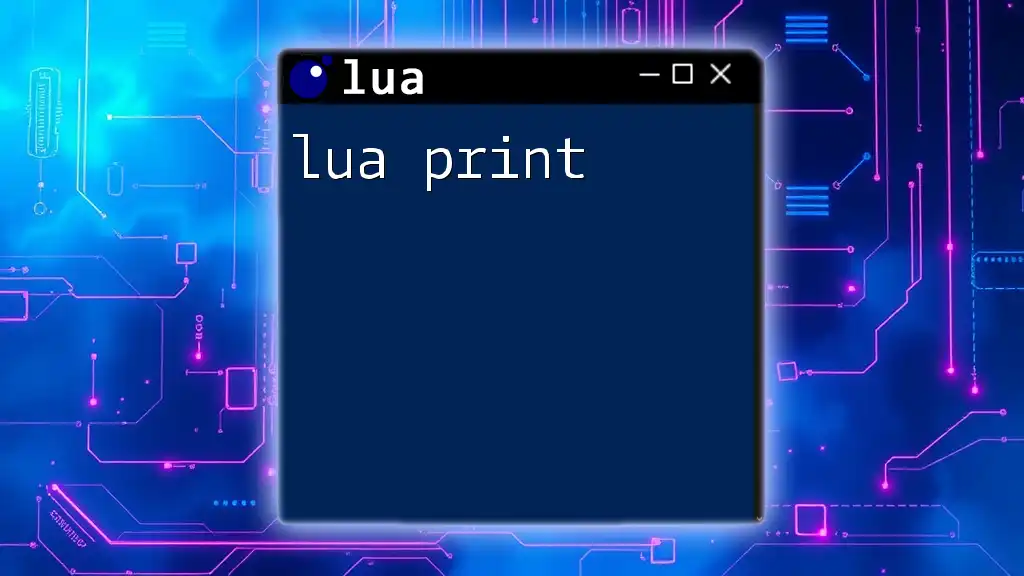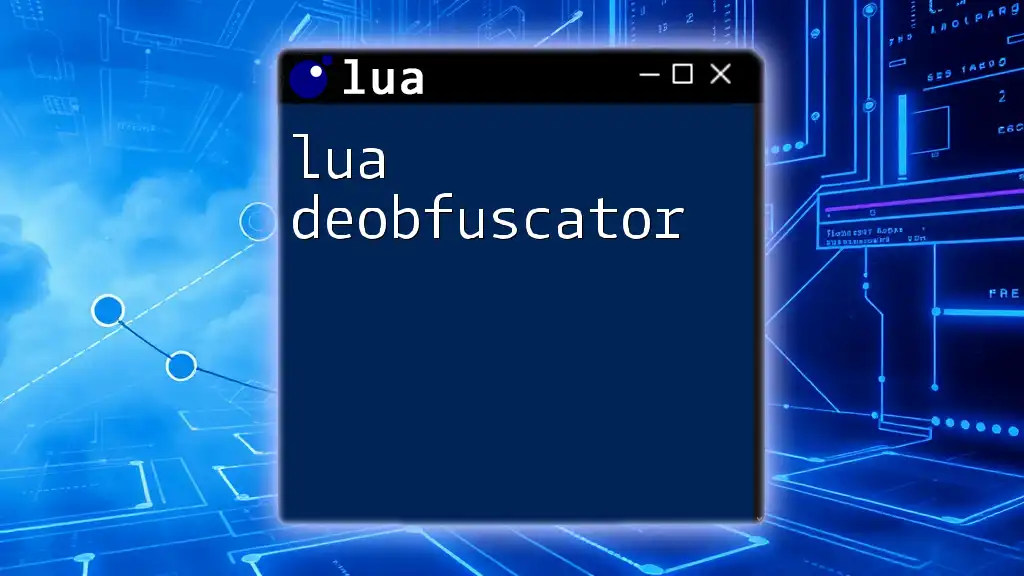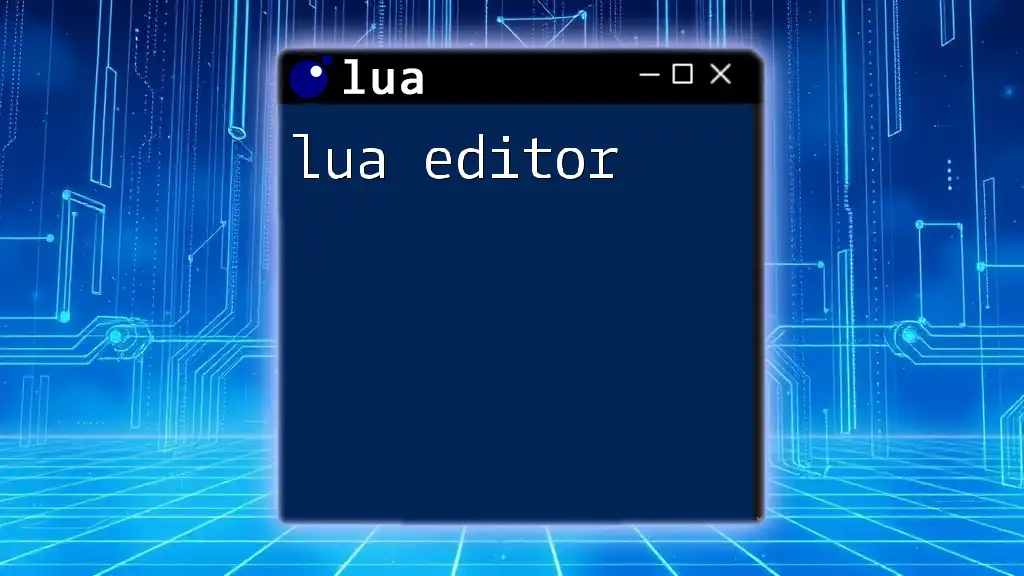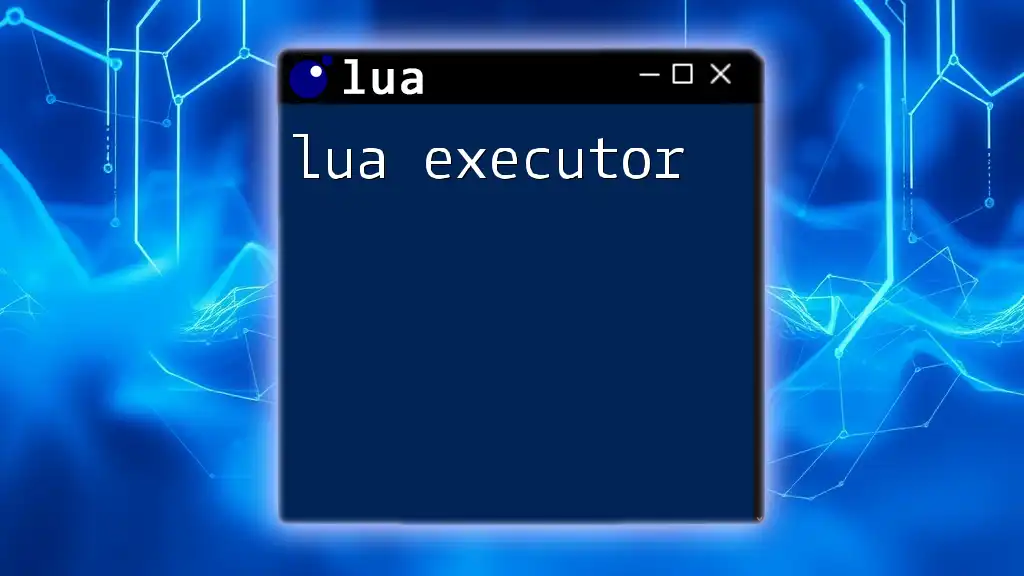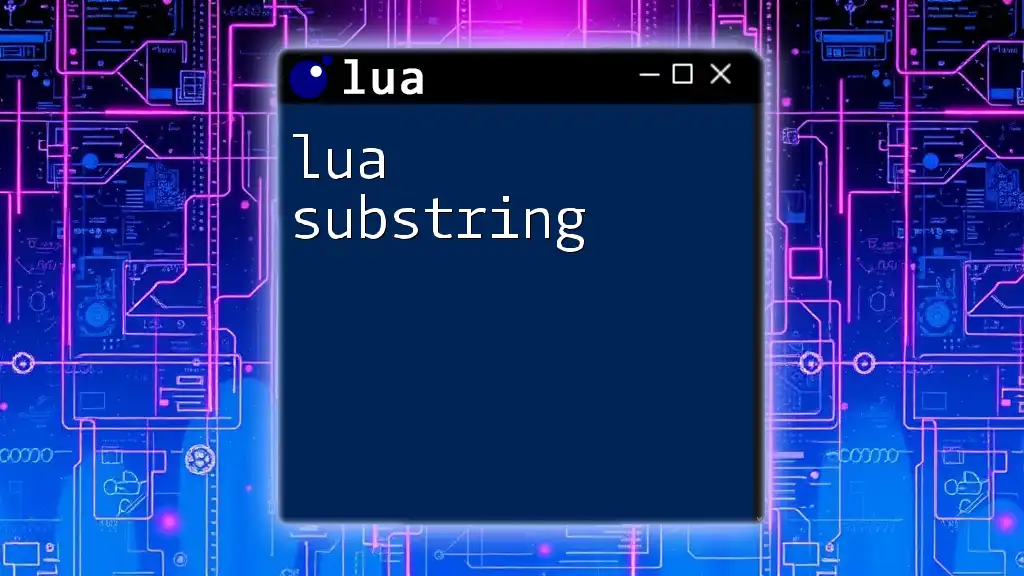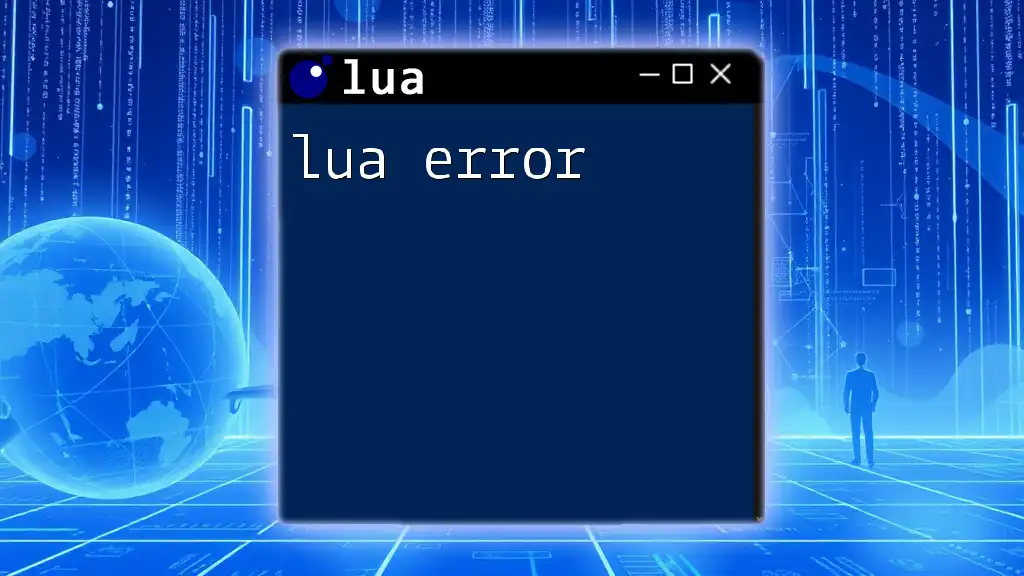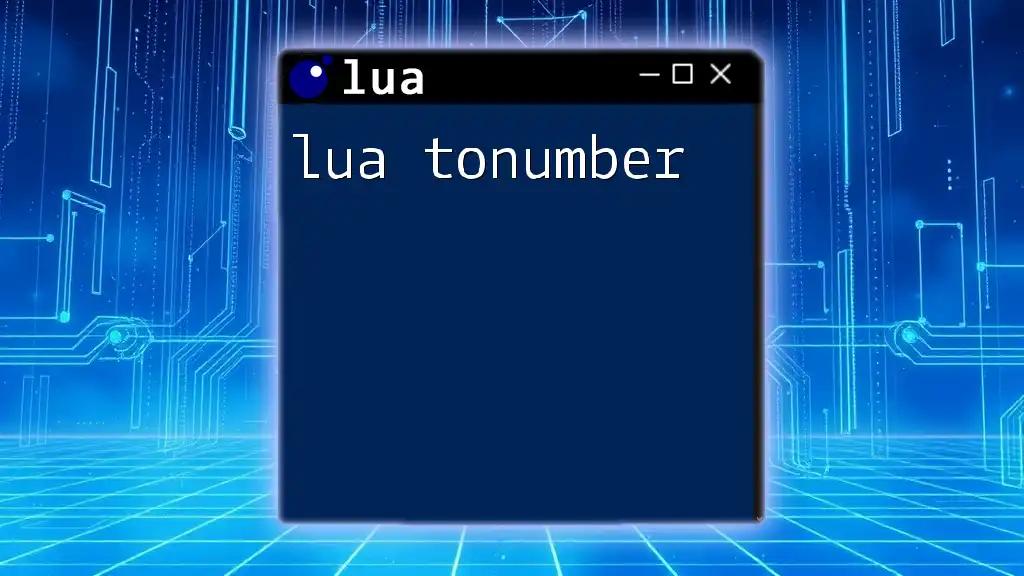A Lua translator is a tool that converts Lua scripts or commands into a different format or language, enabling users to demonstrate their programming logic efficiently.
Here’s a simple Lua example that prints "Hello, World!":
print("Hello, World!")
What is a Lua Translator?
A Lua translator is a tool that converts Lua commands into an executable form that can be understood by a machine. It plays a crucial role in making Lua accessible to users who may not be familiar with its syntax or who need to translate Lua commands into other programming languages. The purpose of a Lua translator is to facilitate coding in Lua by allowing users to translate complex commands into simpler logical constructs, providing clarity and precision.
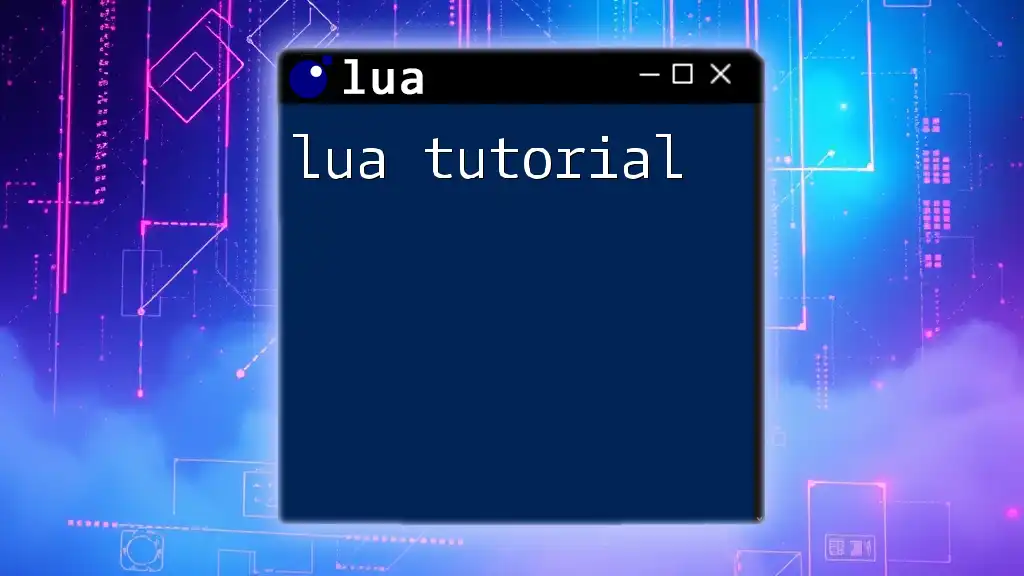
Why Use a Lua Translator?
Utilizing a Lua translator offers numerous benefits, particularly for learners and seasoned developers alike.
First and foremost, it simplifies learning for new users who may struggle with the intricacies of Lua syntax. By breaking down Lua commands into more understandable segments, beginners can grasp the language more quickly.
For experienced developers, a Lua translator increases efficiency by allowing them to translate scripts rapidly, streamline workflows, and integrate Lua code into larger systems without the need to completely rewrite it in another language.
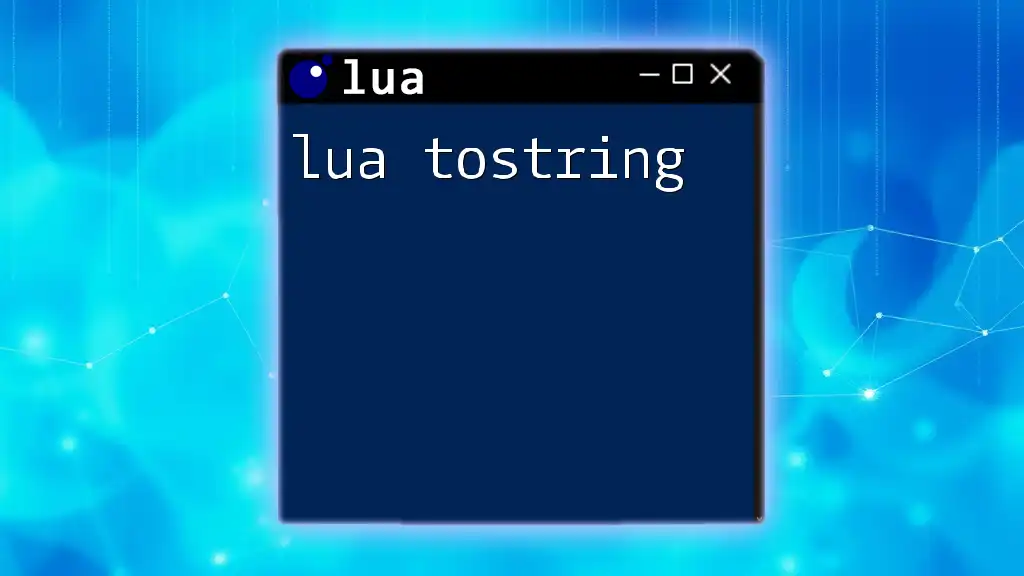
How Does a Lua Translator Work?
Understanding how a Lua translator operates is essential to appreciate its value.
Overview of the Translation Process
The translation process primarily involves two phases: compilation and interpretation. The translator first compiles the Lua code into a bytecode, which is then interpreted by the Lua virtual machine. Components of a translator include a lexer, which breaks down code into tokens, and a parser, which analyzes the tokens to check if they adhere to Lua's syntactical rules.
Key Components of a Lua Translator
Lexer
The lexer is responsible for transforming raw Lua code into tokens. Tokens are the smallest units in programming that hold meaning. For example, consider the following Lua code:
local x = 10
The lexer will identify `local`, `x`, `=`, and `10` as separate tokens, each with a specific function.
Parser
Once the lexer has completed its job, the parser takes over. Its role is to ensure that the extracted tokens conform to Lua's syntax. For example, let’s look at this simple conditional statement:
if x > 5 then
print("x is greater than 5")
end
The parser will evaluate this expression to confirm that it is correctly formatted, parsing each token in accordance with Lua's rules.
Common Features of Lua Translators
Syntax Checking
One of the most valuable features of a Lua translator is syntax checking. This feature helps identify potential errors before the code is executed, which is particularly beneficial for those learning the language. Common messages might point out issues related to missing keywords (like the `end` statement) or incorrect variable naming.
Code Optimization
Another significant aspect of Lua translators is code optimization. Translators employ various techniques to improve the efficiency and performance of code execution. For instance, consider the standard loop in Lua:
for i = 1, 100 do
print(i)
end
An optimized version may leverage built-in functions or data structures to reduce execution time.
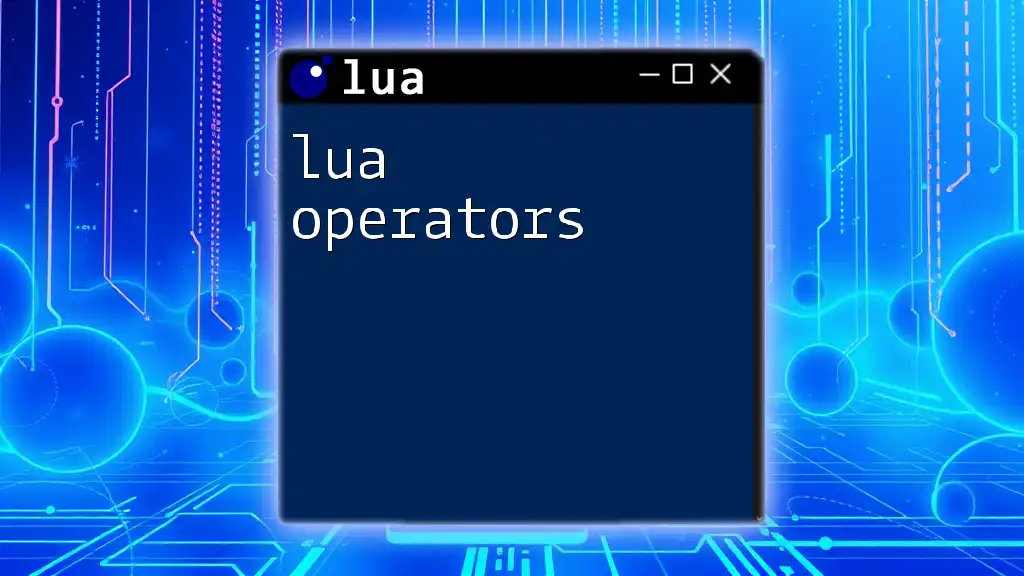
Popular Lua Translators
There are several Lua translators available, each with its unique features and advantages.
LuaJIT
LuaJIT stands for Lua Just-In-Time compiler. It is renowned for its performance improvements over the standard Lua interpreter. By converting Lua code into machine code dynamically, LuaJIT significantly boosts execution speed, making it an attractive choice for performance-intensive applications.
Luerl
Another noteworthy translator is Luerl, which lets you integrate Lua scripts with the Erlang programming language. This combination opens up new possibilities for developers working in environments that benefit from Erlang's concurrency model.
Other Notable Translators
In addition to LuaJIT and Luerl, there are other notable tools to consider. PUC-Rio Lua, developed by the original creators of Lua, offers a foundational implementation of the language. MoonScript, on the other hand, provides a syntactically reachable way to write Lua, allowing a more concise and readable syntax to be compiled into Lua code.
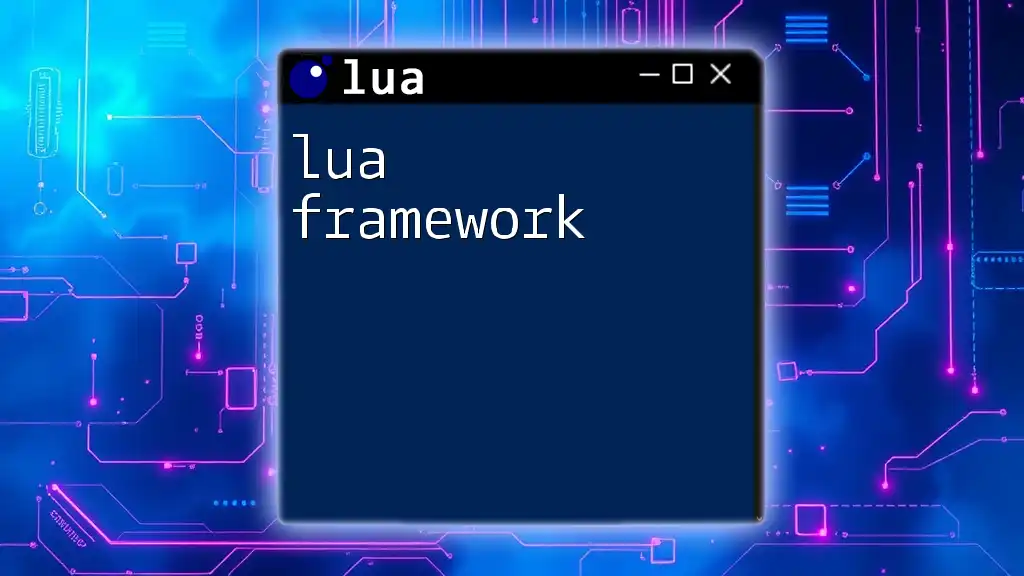
How to Use a Lua Translator
For beginners, getting started with a Lua translator is a straightforward process that involves installation and familiarization with its functions.
Step-by-Step Guidance for Beginners
To begin using a Lua translator, start by installing one of the popular translators available. Most offer extensive documentation to guide you through the installation process. Setting up LuaJIT or Luerl, for example, typically follows clear instructions provided on their respective websites.
Using Basic Lua Commands in the Translator
Once installed, you can begin experimenting with basic Lua commands. For instance, a simple print command can be executed as follows:
print("Hello, Lua!")
Trying out various commands will help you get accustomed to how the translator interprets different Lua syntax structures.
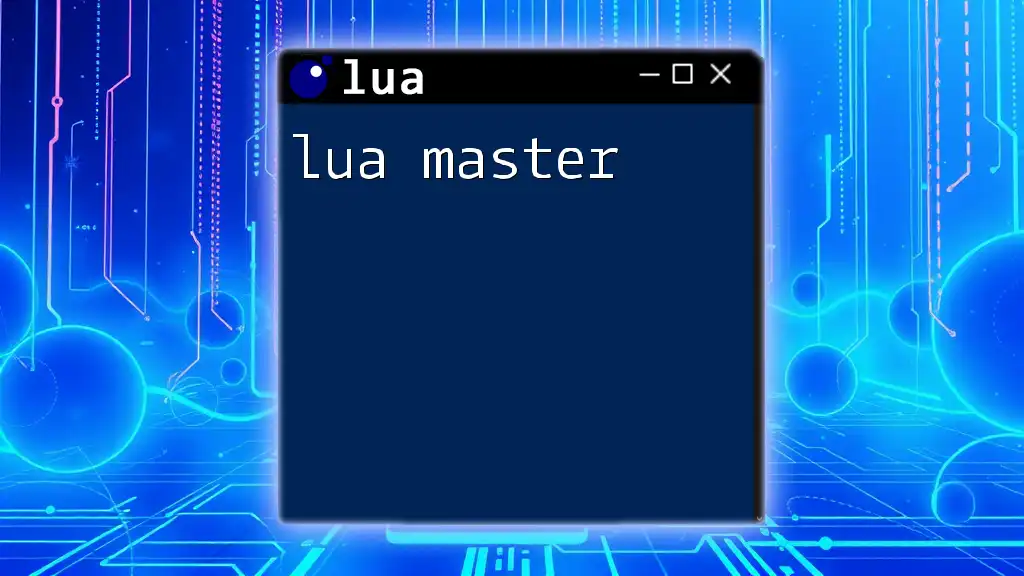
Troubleshooting Common Issues with Lua Translators
As with any technology, challenges may arise when using a Lua translator.
Error Messages and How to Fix Them
Understanding error messages is critical for effective debugging. Commonly encountered messages, such as unexpected tokens or missing keywords, indicate where adjustments are needed. For example, forgetting an `end` statement could trigger an error indicating the statement is incomplete.
Debugging Techniques
To improve your debugging skills, consider using built-in debugging features offered by many Lua translators. Setting breakpoints and inspecting variable values can help pinpoint issues in your code accurately. Moreover, utilize online communities and forums to seek advice and solutions from more experienced users.
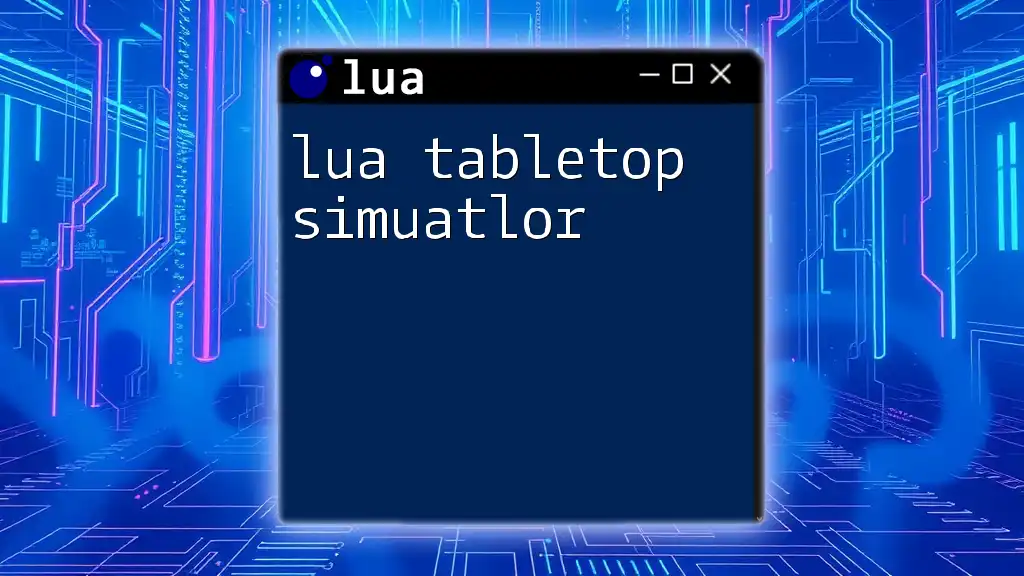
Conclusion
In summary, a Lua translator is a substantial asset for anyone engaged in programming with Lua. By simplifying the coding process and providing opportunities for error checking and optimization, these translators play an essential role in learning and professional development. Don’t hesitate to experiment with different commands and features; such hands-on experience is invaluable in mastering Lua.
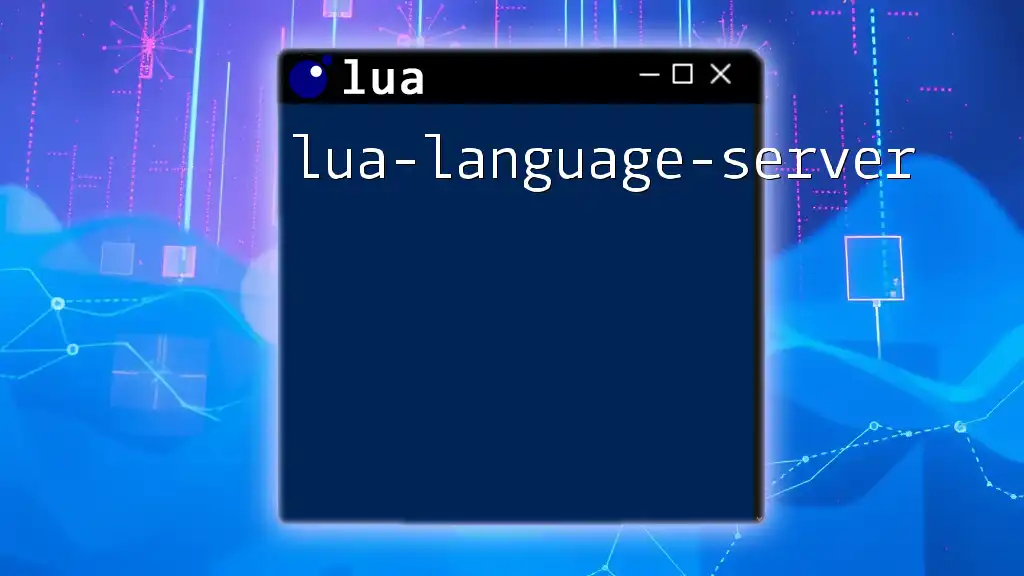
Additional Resources
To further your understanding, consider exploring official documentation and tutorials that delve deep into the intricacies of Lua programming. Engaging with online communities can also enhance your learning experience, offering support and resources from fellow Lua enthusiasts.

